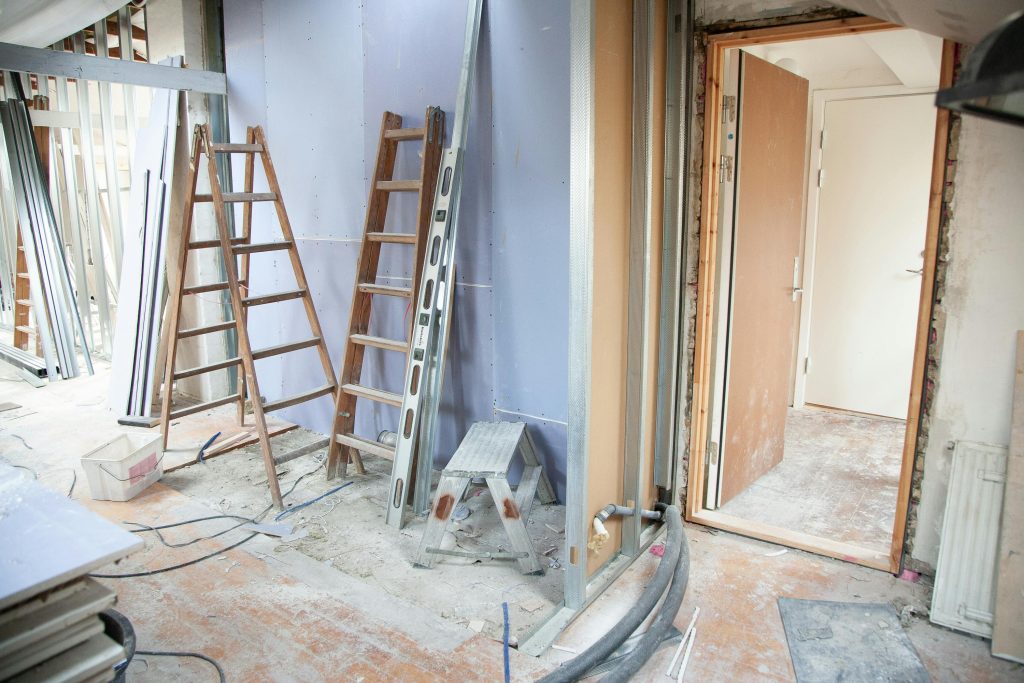What’s the Difference Between a Contractor and a Handyman?

Have you ever found yourself confused about whether to hire a contractor or a handyman for your home project? You're not alone! Understanding the differences can save you time, money, and stress. In this post, we’ll break down the key differences between contractors and handymen, helping you make informed decisions for your home improvement needs.
Section 1: Defining the Roles
Understanding the Role of a Contractor
A contractor is a licensed professional responsible for overseeing construction projects. They can be categorized into general contractors, who manage entire projects, and specialized contractors, who focus on specific trades such as plumbing, electrical work, or roofing. Contractors typically handle larger projects, including renovations, home additions, and new constructions. Their role involves coordinating various aspects of a project, from obtaining permits to managing subcontractors and ensuring compliance with building codes.
Understanding the Role of a Handyman
A handyman is a versatile individual skilled in a variety of repair and maintenance tasks. Unlike contractors, handymen typically handle smaller jobs that do not require specialized licenses. Common tasks performed by handymen include fixing leaky faucets, patching drywall, installing shelves, and performing general maintenance. Licensing and certification requirements for handymen vary by state, with some states allowing them to operate without a formal license for minor repairs.
Section 2: Key Differences
Scope of Work: Contractor vs. Handyman
The scope of work is one of the most significant differences between contractors and handymen. Contractors are suited for larger, more complex projects that require detailed planning and execution. For example, if you’re looking to remodel your kitchen or build an addition to your home, a contractor is the right choice. On the other hand, handymen excel at smaller tasks, such as repairing a broken door handle or painting a room. Understanding the scale and complexity of your project will help you determine which professional to hire.
Licensing and Insurance: What You Need to Know
Licensing and insurance are crucial considerations when hiring either a contractor or a handyman. Contractors are typically required to hold specific licenses and insurance to operate legally, which protects both them and their clients. Handymen, however, may not need the same level of licensing, depending on state regulations. It’s essential to verify the credentials of any professional you hire to ensure they meet local requirements and are adequately insured.
Cost Differences: Contractor vs. Handyman
Cost structures also differ significantly between contractors and handymen. Handymen usually charge an hourly rate, which can range from $50 to $150, depending on the task's complexity. In contrast, contractors often provide project-based pricing, which can be significantly higher due to the scale of work involved. Factors influencing costs include project size, materials, labor, and the professional's experience. Homeowners should budget accordingly and consider obtaining multiple estimates to ensure they receive fair pricing.
Section 3: When to Hire Each
Signs You Need a Contractor
Certain indicators suggest that a project requires a contractor's expertise. If your project involves structural changes, requires permits, or necessitates specialized skills, hiring a contractor is advisable. For instance, if you plan to remodel your bathroom or undertake a major renovation, a contractor can manage the complexities involved and ensure compliance with local building codes.
Signs You Need a Handyman
Conversely, handymen are ideal for minor repairs and maintenance tasks. If you need help with small jobs like fixing a leaky faucet, patching drywall, or assembling furniture, a handyman is the right choice. Their ability to handle various tasks efficiently makes them a convenient option for homeowners looking for quick fixes.
Section 4: Tips for Hiring
Tips for Hiring a Contractor or Handyman
When hiring a contractor or handyman, asking the right questions is crucial. Inquire about their licensing, insurance, experience with similar projects, and references from past clients. Understanding their payment structure and whether they provide a written contract is also essential. This information will help you gauge their professionalism and reliability.
Building Confidence in Your Hiring Decision
To build confidence in your choice, maintain clear communication about project expectations, timelines, and budgets. Establishing a good rapport with your chosen professional can lead to a smoother project experience. Trust your instincts and conduct thorough research to ensure you’re making the right decision.
Conclusion
In summary, understanding the key differences between contractors and handymen can help you make informed decisions for your home improvement projects. Contractors are best suited for larger, complex tasks, while handymen excel at minor repairs and maintenance. Assess your needs carefully and choose the right professional for your project. We invite you to share your experiences in the comments below!
By understanding the distinctions between contractors and handymen, you can navigate your home improvement projects with confidence and ease. Happy renovating!

